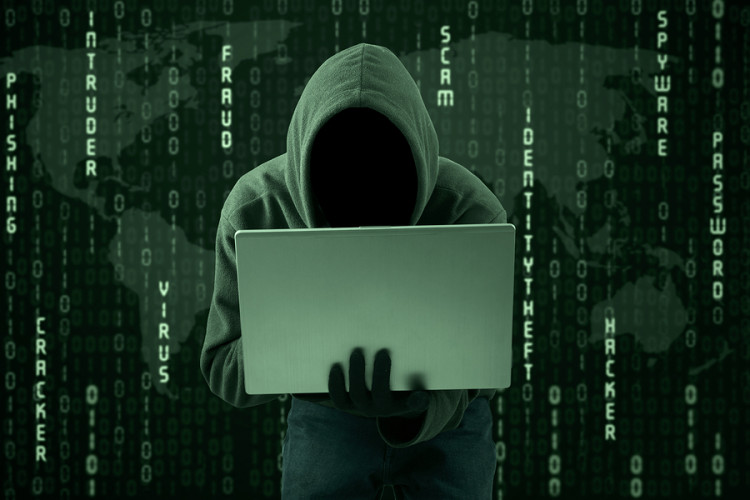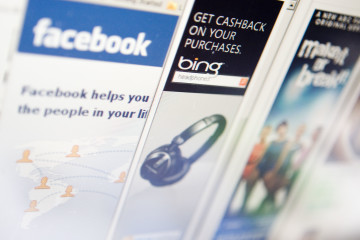Paris Attacks Renew U.S. Call to Access Encrypted Communications

©2015 Bloomberg News
NXXH8U6KLVRB
(Bloomberg) — The bloodshed in Paris led U.S. officials Monday to renew calls for limits on technology that prevents governments from spying on phone conversations, text messages and e-mails.
Senator Dianne Feinstein, the California Democrat, said she’s asked Silicon Valley companies to help law enforcement and intelligence agencies access communications that have been encrypted — or scrambled to evade surveillance — if terrorists are using the tools to plan attacks.
“I have asked for help. And I haven’t gotten any help,” Feinstein said Monday in an interview with MSNBC. “If you create a product that allows evil monsters to communicate in this way, to behead children, to strike innocents, whether it’s at a game in a stadium, in a small restaurant in Paris, take down an airliner, that’s a big problem.”
The debate over using encryption illustrates how the pendulum of balancing security and privacy swings in response to events. Companies such as Apple Inc., Google Inc. and Yahoo! Inc. incorporated stronger encryption in their products after revelations of U.S. spying were exposed by Edward Snowden in 2013. Now the tables have turned.
Apple and Google on Monday didn’t respond to requests for comment on the issue. A Yahoo spokeswoman declined to comment. In the past, the companies have argued that governments can obtain evidence through other means, such as informants.
International Hunt
CIA Director John Brennan and other top U.S. national security officials stopped short of calling for new restrictions on Monday, but did say that terrorism suspects are using technologies to hide their planning and operations from law enforcement and intelligence agencies.
“There are a lot of technological capabilities that are available right now that make it exceptionally difficult — both technically as well as legally — for intelligence security services to have insight that they need,” Brennan said at a Washington event.
The comments come amid an international hunt for clues in the attacks in Paris that killed or injured about 480 people from 19 nations and that officials believe were orchestrated by the Islamic State. Brennan warned that the group likely has more attacks “in the pipeline.”
Apps, PlayStation
U.S. Attorney General Loretta Lynch has said that terrorists are using encryption to communicate — on everything from apps to even gaming systems. Last week, Belgium’s deputy prime minister said that “the most difficult communication between these terrorists is via PlayStation 4.”
Speaking at Politico even in Brussels, Jam Jambon added that “it’s very, very difficult for our services — not only Belgian services but international services– to decrypt the communication that is done via PlayStation 4.”
Players using Sony’s popular gaming system can communicate via direct messages or by voice. A Buzzfeed story noted that players, who can be located anywhere in the world, have found even more elaborate ways to communicate, including using “weapons during a game to send a spray of bullets onto a wall, spelling out whole sentences to each other.”
Balancing Privacy
Several U.S. officials including Lynch declined to say whether the operatives who carried out the attacks in Paris were able to plan the attacks without detection because they used encryption, which scrambles communications using a special code that can only be unlocked with a secret key.
Lynch told reporters in Washington that federal authorities were working with U.S. communications companies to find solutions to the problem.
“Terrorists use any number of means to communicate, including some encrypted means,” she told reporters in Washington. “This is an issue in which we recognize not only the importance of encryption but also the need to do everything we can to protect the American people. As we stated, we are pursuing a number of options. We are in discussions with industry looking for ways in which they can lawfully provide us information while also preserving privacy.”
‘Going Dark’
FBI Director James Comey and other national security officials have been publicly warning for years that investigators are limited when suspects use technology to conceal their operations, such as using private online forums, apps that encrypt e-mails and hidden websites. It’s a problem that law enforcement officials refer to as “going dark.”
New York City Police Commissioner William Bratton on Monday called on technology companies to help investigators, although he didn’t specify exactly how. Technology has been “purposefully designed by our manufactures so that even they claim they cannot get into their own devices after they’ve built them,” Bratton said on MSNBC’s Morning Joe.
“They need to work with us right now,” Bratton said. “In many respects, they’re working against us.”
No ‘Keys’
Representative Michael McCaul, chairman of the Homeland Security Committee, said in a statement Monday that “You can’t stop what you cannot see.”
“The dark space of the Internet is becoming a breeding ground for terrorist communications, recruitment and plotting,” said McCaul, a Texas Republican. “Our inability to monitor encrypted messages on social media apps, and the terrorists’ awareness of that, compounds the danger America and the West face.”
Senator John McCain, an Arizona Republican and chairman of the Senate Armed Services Committee, said on MSNBC Monday that “it’s time we had another key that would be kept safe and only revealed by means of a court order.”
Privacy advocates pushed back against the arguments, saying restrictions wouldn’t make Americans safer.
“Any attempt to mandate back doors or prohibit the technology altogether would basically amount to trying to outlaw math, and any attempt to do will fail to make us safer against terrorism, while making us all much less safe online and also threatening our digital economy,” Kevin Bankston, director of the New America Foundation’s Open Technology Institute, said in an e-mail.
‘Political Values’
“In the end, we can hurt ourselves much more than the terrorists can hurt us,” Bankston said. “Indeed, that’s their entire strategy — to make us injure ourselves, our political values, our economies, our security — in our attempt to injure them.”
Technology is also advancing in such a way that products such as apps and online services have become available that don’t allow any access to decoding “keys” — or “back doors” — so the communications companies couldn’t turn over unencrypted information even if ordered by the courts.
Stopping attacks from ISIS won’t depend only on intelligence but also on eliminating safe havens for terrorists in Syria and Iraq, said Representative Adam Schiff of California, the top Democrat on the House intelligence committee.
“It’s too early, I think, to say, in terms of the attack in Paris to what extent these terrorists may have used encrypted communications,” Schiff said on NPR’s Morning Edition. “Even with the best of intelligence resources there are still vulnerabilities, and ultimately, it’s going to require us to eliminate that sanctuary in Iraq and Syria.”
To contact the reporters on this story: Chris Strohm in Washington at cstrohm1@bloomberg.net; Del Quentin Wilber in Washington at dwilber@bloomberg.net To contact the editors responsible for this story: Jon Morgan at jmorgan97@bloomberg.net Elizabeth Wasserman







No Comment